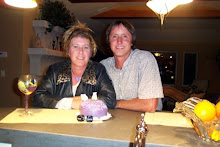Long considered as the bastion of feudalism, Catholicism and religion always seem to be untouchable. It was often dangerous to remark something against it because individuals who do so were often declared as heretics. As a result, religion's potential as a social force and power has always been limited to spirituality. Its potential to develop societal beliefs, norms, and influence on political paradigm shifts had been obscured by its more obvious function. But new researches had shown and proven that religion, particularly the dominant Catholicism was a dominant influence in the political movements that shaped the nation.
The time of the Inca or the native Indians saw a wide differentiation of faith. There was no Catholicism and religion to speak of. The natives worshipped idols and the elements of nature. It was noted that how they practiced "religion" or faith was also the way they governed their lands. In their faith, there were many idols, each respected and worshipped. It was also the same way with their politics wherein they were governed by a council. Though there was usually a chieftain, he had a council of elders whom he consulted before any decision was made. In effect, there were many leaders. But despite the many leaders, evidences indicated that the natives never fought among themselves. They chose the strongest and wisest warrior to rule their land without any political parties. The decision is made by the council, the chieftain, and the community, in general.
The invasion of the colonizers and their own brand of religion brought significant changes in the political nature of the land. Catholicism and religion took hold of the land even with the resistance efforts of the Indians. Suddenly, there was only one God and the idols were banished. Coincidentally, this one-God mania also brought forth a change in the economic and political system of the land. There was only one recognized ruler, and that was the Catholic king. There was also a monopoly of goods in trade. But this Catholicism was obscured by the coming of the Puritans and The Quakers. Over time, America became a state that offered a diversity of religion.
Curiously, this diversity of religion mirrored the shifts of political movements and economic trends. As there were many faiths, the country in practicality, was also ruled by federal system and democracy. There was also what was popularly known as the free trade or free market, wherein different individuals started their own trade rather than being apprentices to established companies. Thus, the religious diversity gave rise to capitalism. Possibly and probably, political and economic trends were dictated and determined by the dominant religious practices. It was also probable that the system worked in the opposite, with religious practices ordered by the economic and political atmosphere. But whatever direction this system has pursued, its repercussions were felt and influenced people's lives.
For more valuable information on Catholicism and Religion, please visit http://www.bellinter.net

No comments:
Post a Comment